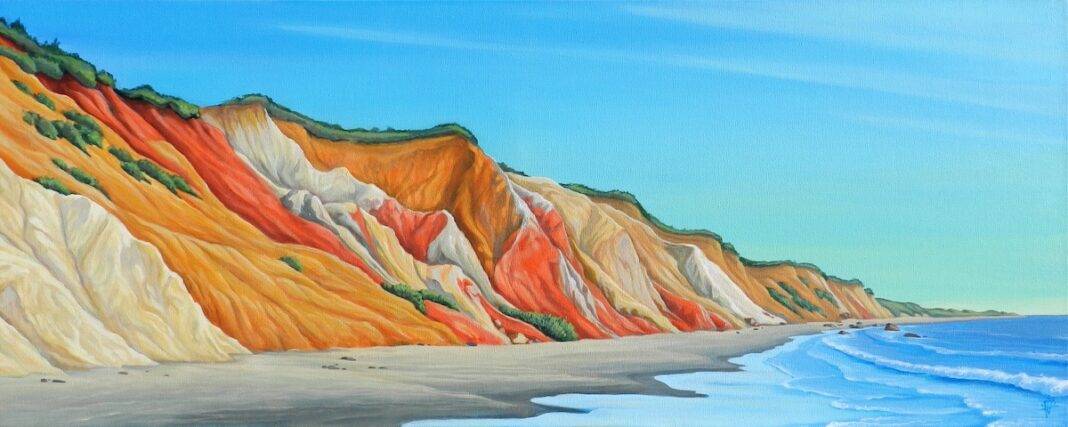I cannot offer you a dictionary definition of psychogeology because the word is not in the dictionary. What I can do is tell you that the author who coined the term, Kim Stanley Robinson, wanted a word to define how we are shaped by the places where we live or have spent time. Psycho, as a prefix, refers to relating to the mind or the soul. Geology, broadly, means the substance of the earth.
Robinson chose to use the term “geology” and refers specifically to mountains. The Sierra mountains (the focus of his most recent book, The High Sierra, a Love Story) make him feel differently than Swiss mountains, he says, inviting us, too, to notice how different places make us feel.
“I think the mountains are a space where you are taken outside of your ordinary urban mind and are thinking a little deeper — or, no, that might not be the right way to put it,” he said during an interview on The Ezra Klein Show. “Things are coming together in your head in a different way.”
Richard Powers, author of Bewilderment and The Overstory, described his first foray into the Smoky Mountains to Ezra Klein in a separate interview: “When I first went to the Smokies and hiked up into the old growth in the Southern Appalachians, it was like somebody threw a switch. There was some odd filter that had just been removed, and the world sounded different and smelled different. The experience was so transformative for Powers that he found himself still thinking about it a year later. “If you’re still preoccupied with a place and how you felt in that place after such a long period of time after only a four-day exposure,” Powers said, “that’s got to tell you something.”
Sounds a lot like psychogeology.
There is a particularity to psychogeology, according to Kim Stanley Robinson: “I talk about psychogeology as the trying to understand why, for instance, the Sierras feel so different than the Swiss Alps or the trans-Antarctics or the Himalayas.” It is the character of these places, he posits to Klein, that coalesce into a particular feeling. … You can try to explain it, but it’s more of a gestalt. And that’s psychogeology.”


Perfect new word for my vocabulary. As I think about three very different islands, Bequia, Barbados & MV where I’ve spent significant time, I realize we’re talking about psychogeology. They are all surrounded by ocean water meeting beautiful beaches , but I carry with me distinctly different feelings and sensations from each.